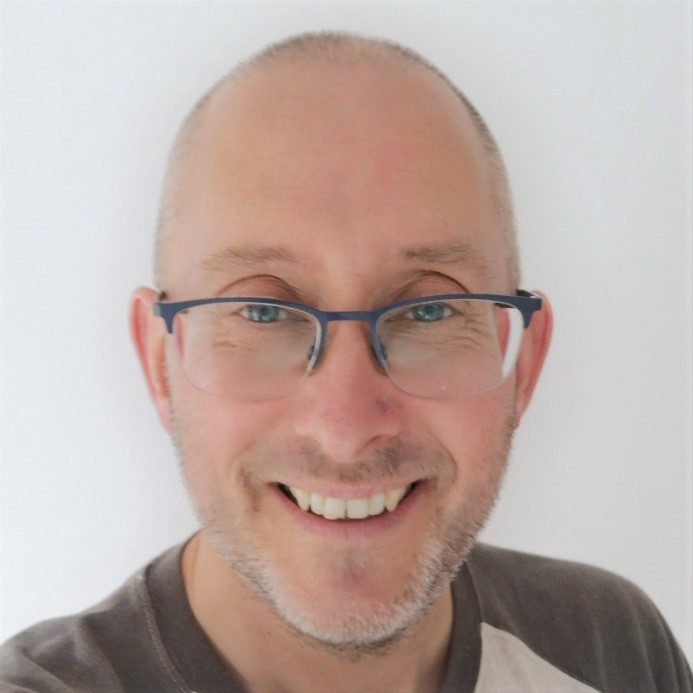Andrew Yool
- Please introduce yourself.
I’m a marine biogeochemistry modeller working within the Marine Systems Modelling team at the National Oceanography Centre (NOC) in Southampton.
- Tell us about your professional and academic career before becoming part of the BIOPOLE Community.
Way back in the last century, I originally trained as a real biologist working across the botany and zoology groups at the University of Dundee. However, I’d also always enjoyed mathematics at school, so when I came to pick a doctorate, I chose a marine ecology modelling project at the University of Warwick – well-known for its proximity to the ocean! After completing that, I was lucky enough to get a position at NOC, working with the Great God of Plankton Modelling, Mike Fasham, on large-scale carbon cycle modelling. I’ve been here ever since, gradually moving from work using simpler models (GENIE) through ocean general circulation models (OCCAM, NEMO) to Earth system models (UKESM1).
- What do you do within BIOPOLE?
I’m involved in two parts of WP3 of BIOPOLE. The first is focused on adding the process of diapause to the large zooplankton of MEDUSA, the marine biogeochemistry model that I lead development of at NOC. This process essentially allows zooplankton such as copepods to hibernate in relative safety away from the risky surface ocean. Because of this, it’s implicated in the transfer of carbon to the deep ocean, and we’d like to quantify just how important it is for this. That said, although I’m leading this work, it’s my NOC colleague – Julien Palmieri – who’s actually doing the hard work of coding and testing the diapause model that I’ve designed. Separately, and based in part on my experience with the UK’s Earth system model, UKESM1, I’m assisting with a separate WP3 modelling activity to understand nutrient import/export from the polar regions and the potential effects on productivity at lower latitudes.
- What have you enjoyed about BIOPOLE so far?
It’s a cliché, but it’s mostly been about the people so far for me. Although there’s a lot of sloshing about in UK oceanography, and I have tended to bump into many people down the years, I’m finding myself working with new colleagues in BIOPOLE. Partly it’s down to the greater biological focus of my involvement with the project, but a big dollop of luck has been important too. And I’ve really enjoyed meeting and interacting with my new colleagues. Particularly around designing the diapause model that we’re building for BIOPOLE, we’ve really benefitted from having the team around us that the project has assembled.
- Tell us about a skill or trait unique to you that you would like to share?
Largely for historical reasons, oceanography is a subject that draws people in from across the natural sciences – and, increasingly, from the social sciences too. As a result, there are a lot of unique people in the field in the UK today. All of which makes for a really enjoyably diverse group of people with wide-ranging experiences, skills and perspectives.

